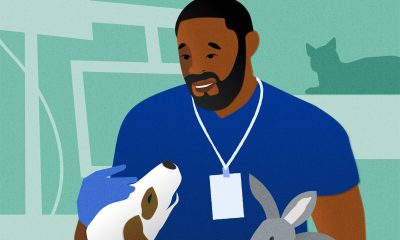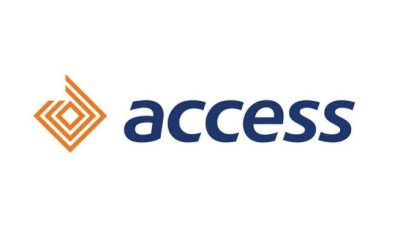Career Tips
Top Entry Level Interview Questions And Answers

What differentiates entry-level interviews from other interview models? What are entry-level interview questions and how do you answer them? This article addresses these and more. As a recent graduate entering the job market, you may be asked certain interview questions. Some are general interview questions and answers, while others are entry-level job-specific.
Preparation is crucial to avoid mistakes in entry-level interviews. Knowing your resume, career, and the company you’re interviewing for is important, but knowing the interview questions and answers is too.
So, here’s a list of the top 10 entry-level interview questions and answers to help ease your transit into the corporate world as a newbie.
Entry-Level Interview Questions and Answers
1. Tell Me About Yourself
Most interview questions include ‘Tell me about yourself’. It was popular with hiring teams because it broke the ice and made applicants feel comfortable talking.
This open-ended question tests your ability to present yourself as the best (wo)man for the job. Tell them what makes you stand out from other applicants.
Your autobiography should not bore the interviewer. The interviewer and hiring manager don’t care about your favorite food, hobbies, or soccer team. Time is important because it’s easy to get lost in your back story.
Tip: Give a brief overview of your upbringing (if relevant), where you went to school, what you majored in, any entry-level experience you have, and why you applied for the job. All your answers should demonstrate your suitability for the job.
2. What Are Your Strengths and Weaknesses?
This is another common interview question. When interviewers/hiring teams ask about strengths and weaknesses, they want self-assessment skills.
When discussing your weaknesses, relate them to the role you’re interviewing for by mentioning abilities/propensities or character traits.
The type of job you’re interviewing for may determine which weakness to focus on. Explain a career situation where this trait came into play and how you handled it.
Tip: List three strengths and weaknesses. Be honest about your weaknesses. Instead, discuss your efforts to improve. Honesty is important, but avoid listing offensive or corny traits as strengths or weaknesses. Avoid using words like “laziness,” “lateness,” and “perfectionism.” Remember to convince them to hire you, not audition for a reality show.
If you need help identifying your strengths and weaknesses, ask friends and family. People often judge your character better than you.
3. Do You Have Any Part-time Work Experience?
Like any interview, experience increases your chances of being hired in entry-level interviews. Mention your part-time work and how it helped you gain work and real-world experience, improve your communication, collaboration, and problem-solving skills.
Tell the truth if you lack experience, part-time or otherwise. It’s not worth it because it’ll be discovered.
Tip: Discuss three times you faced conflict at work or school, with an administrator or peer, an authority figure, or a difficult task you completed.
4. Where Do You See Yourself In The Next Five Years?
Interviewers ask “where do you see yourself in the next five years” to see if your career goals match the company’s.
Even if you’re working with them briefly, don’t say this. No hiring manager wants to hear you say you’ll only stay until a better opportunity comes along and you leave quickly. When answering, consider how the position could advance your career and help you achieve your goals.
Tips: There’s no “correct answer” to this question, so it’s fine to say you don’t have one. Explain why you don’t have any.
Being fresh, you can minimize your professional goals and desires and focus on what you can bring to the company and industry of the job you’re applying for.
5. Tell Me About Your Educational Background
As a recent graduate, you may have little work experience as an entry-level applicant. Your qualifications would be the focus of your interview, since many entry-level jobs have educational requirements. To assess your qualifications, the interviewer will ask about your education.
You probably didn’t love your field and chose it for practical reasons (it’s okay). However, do not tell the hiring manager. You probably chose it because it was interesting, challenging, or would lead to a lucrative career.
Tip: Knowing and explaining why you chose your major is the key to answering this question. Be straightforward even if your explanation seems boring. Better to be honest with yourself and the interviewer than to tell them what you think they want to hear.
6. Why Are You Interested In This Role?
Why are you interested in this role? ‘I need a job’ may seem obvious. This answer is unmotivated and unprepared.
First and foremost, the hiring manager must find a candidate with enough dedication and passion. Despite its truth, this answer is unwise.
To demonstrate future readiness, answer the hiring manager’s question about your career goals.
TIP: Answer this question strategically. Clarify your goals and assumptions, assess how your skills match those of the position, and explain why you applied to this company.
Discuss your goals and expectations, how your qualifications match the job, and why you applied to this company.
7. Describe Your Internship Experience
As stated earlier, entry-level roles do not typically request for work experience. However, many fresh applicants acquire some form of experience and it’s usually through internship programs.
Note: If you do not have any, do not lie about it. Simply state that you do not have internship experience.
Tip: If your internship experience is in line with the job you are applying for or if the skills your acquired there can be applied to this role you are applying for, make sure to expound on them. Use it as an opportunity to showcase your transferable skills – communication, leadership, team work and so on.
8. How Has College/University Prepared You For This Role?
The ‘How has College/University prepared you for this role? question is very similar to the ‘tell me about your educational background’ question. The major difference is that this question is focused on the hard/technical skills your acquired in school. It’s a test of your career knowledge and how you would be able to apply it to real life work.
Tip: Describe the skills you learned in school and how the fit into the role you are interviewing for.
9. What Was Your Favorite Subject?
‘What was your favorite subject’ is another school-related question asked in entry-level interviews. One reason is to determine if your passion is related to the job you are applying for.
Be honest, but choose something that matches your job skills, interests, and experience. Don’t say you chose a subject because it was easy or because your friends did.
Tip: Explain how your favorite subject relates to the role rather than just answering and expecting the hiring manager to figure it out. Say how your favorite subject, economics, helped you develop research and problem-solving skills if you’re applying to be a content writer.
10. How Will Those You’ve Worked With Describe You?
The interviewer may ask how coworkers describe you to assess your self-awareness. Will you praise or degrade yourself?
Tip: Balance is best. Tell them you can’t be sure of their opinions of you. But explain how your successful projects and self-conduct should have benefited them. To support your claim, mention that you still talk to them.
This shows the hiring manager that past coworkers likely value you without self-promotion.
11. How Will You Handle A Looming Deadline?
When recruiters ask ‘how will you handle a looming deadline, they are doing so to see how you will react in certain tasking scenarios.
Newcomers to the workforce may find it difficult. Hiring managers use entry-level interviews to determine who will fit best with the company.
You may top your class but fail the interview because your situational questions don’t show you’re the best fit for the company.
Time- and resource-intensive tasks may test your ability to submit on time. What will you do with a deadline approaching?
Tip: This entry-level interview question tests time management. Despite your lack of work experience, you must have struggled with looming headlines in school.
State that you struggled to meet the deadline. Summarize how your strategies helped you meet the deadline.
12. Describe A Time You Disagreed With a Colleague or Classmate
If you have not noticed, virtually all entry-level interview questions and answers incorporate soft or employability skills.
While hard skills are important, soft skills will help you sell yourself in an entry-level interview. This is used when asked to describe a time you disagreed with a coworker.
In human interactions, disagreements are inevitable. The workplace is no exception. The hiring manager is not judging your combativeness when you describe a time you disagreed with a colleague or classmate during an entry-level interview. They are testing your conflict resolution and teamwork skills.
Tip: Discuss a disagreement over a problem-solving method. Avoid mentioning minor events like someone eating your chicken in your interview.
13. What Are Your Hobbies? /What Do You Like To Do Outside Of Work/School?
As stated earlier, the ‘tell me about yourself’ question is asked by interviews to gain know about you. But some may want to know even more.
The interviewer asks, “What are your hobbies or what do you like to do outside of work?” to assess your personality and fit with the company culture.
This question seems fun and playful, but it’s still an interview. Your response should be brief and professional.
Avoid discussing politics, religion, and other sensitive topics unless you know the company’s work culture and politics.
You can relate your hobbies to the job you’re interviewing for or keep it light. Light-hearted hobbies include:
- Volunteering.
- Planting.
- Listening to podcasts.
- Reading.
- Sightseeing.
- Spending time with loved ones.
- Playing chess (or any board game).
Also, make sure you are passionate or at least knowledgeable about your chosen hobby, as interviewers tend to probe further during entry-level interviews.
14. Describe A Time When Your Work Was Publicly Criticized
When you are asked to describe a time when your work was publicly criticized, the hiring manager is trying to gauge how you react to feedback.
Do you ignore criticism and take offense to disagreement? Do not say this. As criticisms and disagreements are part of workplace interaction, no hiring manager would hire someone who would likely hinder teamwork.
Tip: Share a time someone publicly criticized a project you worked on.
Explain why you did the project that way and politely disagree with their criticism. Mention that you found a compromise.
This indicates good communication, problem-solving, collaboration, and interpersonal skills.
15. Describe A Time When You Managed A Project or People
The question, ‘describe a time you managed a project or people’ is a test of your leadership, communication and collaboration skills.
It may seem odd for an entry-level position, but hiring managers only consider what you can contribute in the future.
Leadership skills and how you handle small management tasks are what they want to see. If you don’t have workplace leadership experience, mention a school project or group you led. No explicit leadership is required. Any managerial role would work. Just be ready to explain if asked.












